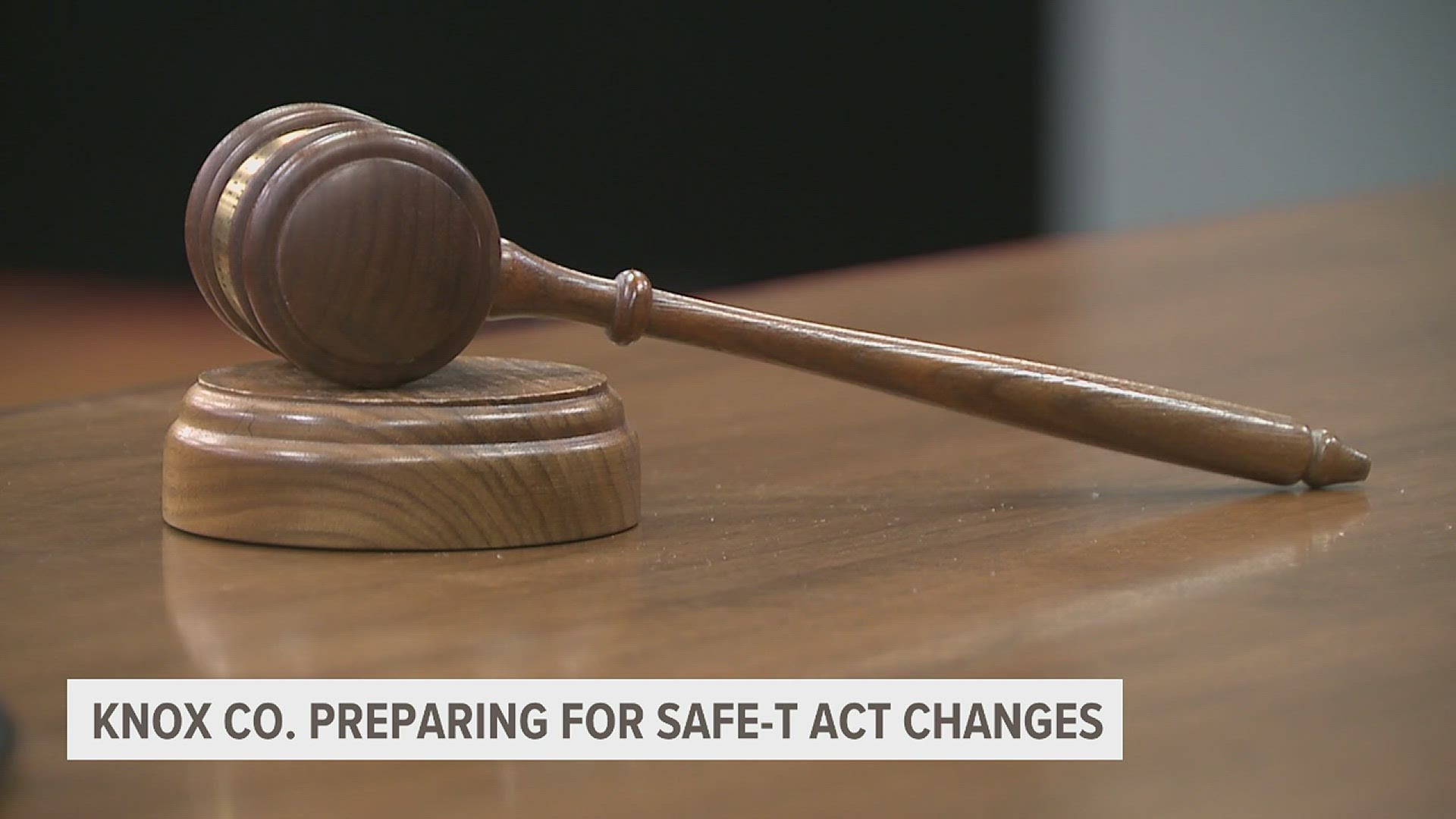GALESBURG, Ill. — The next two months are all about preparation and making sure everyone in the Knox County justice system understands the Illinois SAFE-T Act and how the elimination of cash bail will change operations, county State's Attorney Jeremy Karlin said.
The Illinois Supreme Court on Tuesday upheld the constitutionality of the law ending cash bail, ordering implementation on Sept. 18. This means money will no longer play a role in whether a suspect is incarcerated while awaiting trial. Instead, the new system will be based on the type of crime or an offender's level of risk of reoffending or fleeing prosecution.
"It's going to fundamentally change the process, from arrest, to first appearance to courtroom trial and sentencing as to whether or not defendants are held before trial," Karlin said.
Karlin was among over half of the 102 Illinois State's Attorneys who filed lawsuits against the act, seeking a judge to declare it unconstitutional. With the state Supreme Court ruling in favor of the law, Karlin said Knox County is committed to complying with it, even though it will pose challenges.
In order to help staff working in the county's justice system, Karlin and his office have created a 100-page handbook on the SAFE-T Act.
"It provides flowcharts and decision trees from the time of arrest, to when they're in the jail and what we need to do in court so that it's very easy for individuals to learn the process," he said.
He's also going to hold a series of trainings.
"For law enforcement, for the circuit clerk, the jail, the sheriff, public defender and judges to make sure that we're all on the same page of the playbook to make sure that we're not fighting about what the law says or having disagreements about what the procedure is," Karlin said. "Only that we're having disagreements about whether or not someone should be held in custody or not."
Instead of having discussions about what bail should be set at, the State's Attorney office will have to decide who needs to be detained pending trial. He explained what the new flow chart looks like if they do decide to detain someone.
"We'll have to do a lot more paperwork than we normally do, file motions to make that happen, get the discovery and information to defense attorneys, notify victims all within a short 24 to 48 hour period," Karlin said. "Then the judge will determine whether or not the person will be detained, or whether or not be released with special conditions."
However, deciding who should remain in custody is something they already do now, so in some cases, Karlin said the SAFE-T Act will bring improvements to those decisions.
"For example, the people who we know should be detained right now, we still set bail on them even though we don't think they should be released," he said. "From time to time, we're surprised when even though we set a high bail, someone comes up with $50,000 say, and they get released. And we're wondering how does that happen? And then we're worried, right? Under the SAFE-T Act, we don't do that anymore, you're just detained."
There are some instances where Karlin worries about releasing people who have committed lower level crimes.
"They are really crimes of addiction, or crimes of mental illness," Karlin said. "Right now because there's such a lack of resources in all of our communities, there's very few mental health places for people to go when they're in need. And unfortunately, it usually falls to the criminal justice system to detain an individual, at least on a temporary basis until they can get to treatment."
He thinks bail reform is necessary, but said it's a two-step process and the state needs to now focus on the second step, which is providing those resources, such as drug and mental health treatment to criminal defendants.
The other change Knox County will have to adapt to is a change in revenue. When someone posts bail, according to Karlin, the county gets to retain 10% of those proceeds once the case is over.
Two years ago, Knox County implemented a court diversion program with a goal to keep low level first-time offenders out of the criminal justice system. It offers all qualifying offenders a chance to avoid criminal charges.
From April 2021 to April 2023, 106 people were diverted from the Knox County criminal justice system. The majority were arrested for misdemeanor or felony theft. Of those, 82 successfully completed the program, and only 2 of them recidivated, or reoffended.

